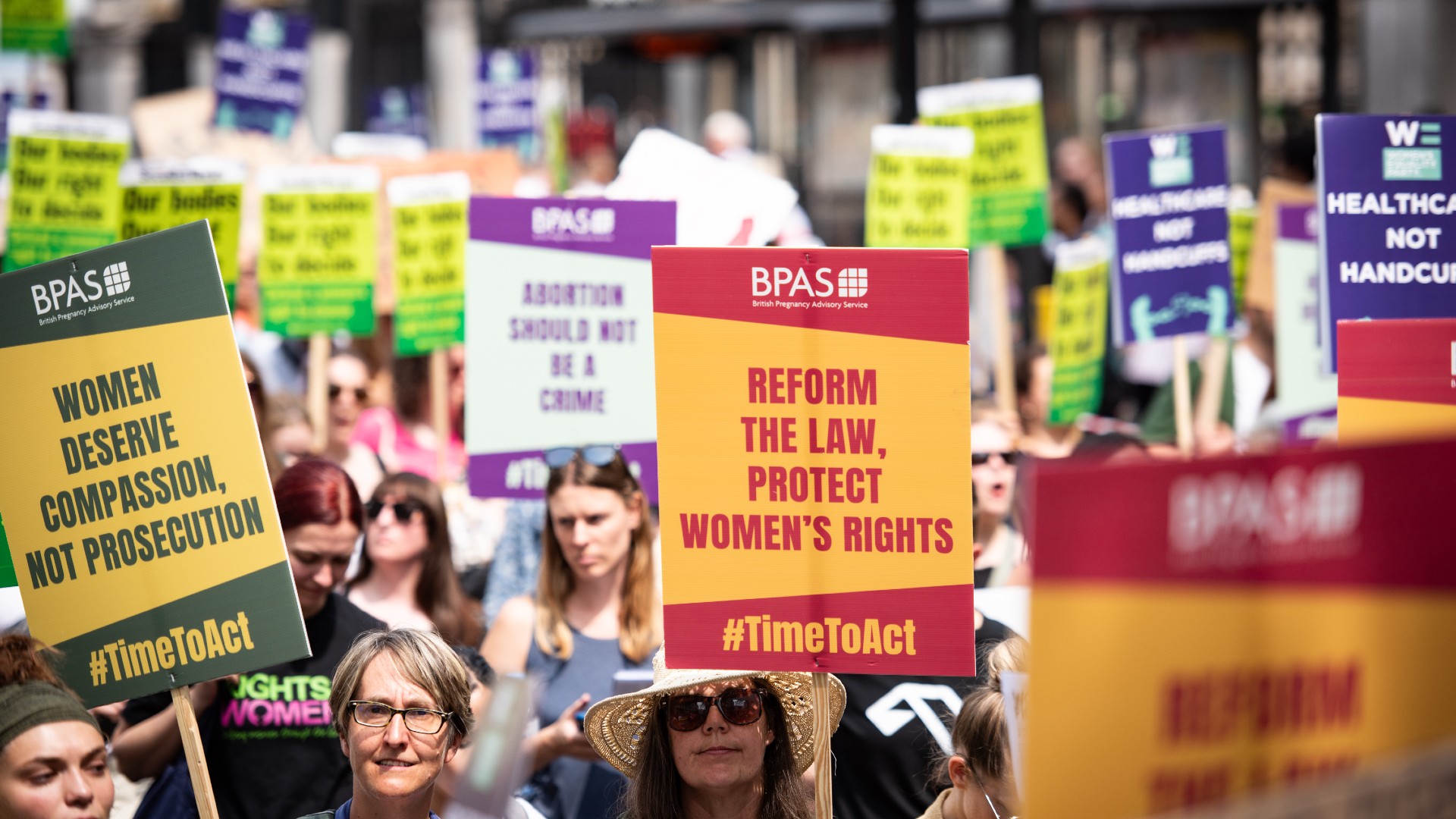The rise in illegal pregnancy termination investigations
'Unprecedented' number of women being prosecuted prompts medical body to tell members not to report suspected cases to police

A free daily email with the biggest news stories of the day – and the best features from TheWeek.com
You are now subscribed
Your newsletter sign-up was successful
An "unprecedented" number of women are being investigated by police on suspicion of illegally terminating a pregnancy as MPs prepare to vote on decriminalising abortion entirely.
MSI, one of the UK's leading abortion providers, told the BBC it knows of up to 60 criminal inquiries in England and Wales since 2018, "compared with almost zero before". The British Pregnancy Advisory Service (BPAS), the UK's other main abortion provider, told the BBC Radio 4 programme "File on 4" it has also received more than two dozen police requests for the medical records of women who have enquired about an abortion.
Tortoise reported last October that police are "testing women for abortion drugs and requesting data from menstrual tracking apps after unexplained pregnancy losses".
The Week
Escape your echo chamber. Get the facts behind the news, plus analysis from multiple perspectives.

Sign up for The Week's Free Newsletters
From our morning news briefing to a weekly Good News Newsletter, get the best of The Week delivered directly to your inbox.
From our morning news briefing to a weekly Good News Newsletter, get the best of The Week delivered directly to your inbox.
What is the existing law?
Abortion is legal up to 24 weeks in England, Scotland and Wales provided it is approved by two doctors. It can also be carried out in "limited circumstances" after this period, said the Daily Mail, such as severe disability or risk to the mother's life. After 10 weeks, the procedure must be carried out in an approved clinic or NHS hospital.
Deliberately terminating a pregnancy outside of these strict parameters is still a criminal offence under the 1861 Offences Against the Person Act, which carries a maximum punishment of life in prison.
There has, however, been an increase in the number of investigations into suspected illegal abortions in recent years, said the Mail. In 2022, the number logged with police forces rose to 29, from 16 in 2018, with six women prosecuted in England on suspicion of breaking abortion law last year. To put that in context, there were no known prosecutions of women using abortion law in relation to their own pregnancy between 1967, when abortion was legalised up to 28 weeks under the Abortion Act, and 2006.
Why the recent increase?
"Changes in the law to allow medical abortions at home have raised awareness and suspicion among emergency services and police," said The Times. This may be linked to the "unprecedented" number of women now being investigated, said Dr Jonathan Lord, medical director at MSI.
A free daily email with the biggest news stories of the day – and the best features from TheWeek.com
Introduced in England and Wales during the Covid lockdowns, the "pills by post" scheme allows pregnancies up to 10 weeks to be terminated at home, but the BBC said campaigners are concerned that some women "knowingly or unknowingly" use the pills after this cut-off point.
The problem, said The Guardian's legal affairs correspondent Haroon Siddique, is that the 1861 law has never been repealed, meaning "anyone who has an unregulated abortion or tries to terminate their pregnancy without supervision from medics is acting unlawfully". He said concerns about the existing laws "came to the fore" last year when a woman was sentenced to more than two years in prison for procuring drugs to induce an abortion after the legal limit.
The majority of cases under investigation have been dropped without charge, but only after "months of turmoil and restrictions," said The Times, "which have included women being separated from their existing children".
Should the law change?
Campaigners have long argued that the law concerning abortion – which was last amended in 1990 when the 24-week time limit was imposed – needs updating. MPs are in fact due to vote next month on an amendment to the Criminal Justice Bill that would fully decriminalise abortion in England and Wales.
New guidance issued in January by the Royal College of Obstetricians and Gynaecologists (RCOG) said that its members should not report women to the police if they believe they may have illegally ended their pregnancies. This, along with its call for abortion to be decriminalised, is a "significant intervention in the debate", said Siddique.
But the guidance has been criticised by pro-life groups, who said it risked undermining the rule of law. Catherine Robinson, spokesperson for Right to Life UK, told the Mail: "It is deeply inappropriate for the RCOG to usurp Parliament by issuing guidance related to criminal investigations."
She added: "This new guidance appears to create a presumption against disclosing information about illegal abortions to the police, and this could leave vulnerable women in these situations being denied the protection of the law."